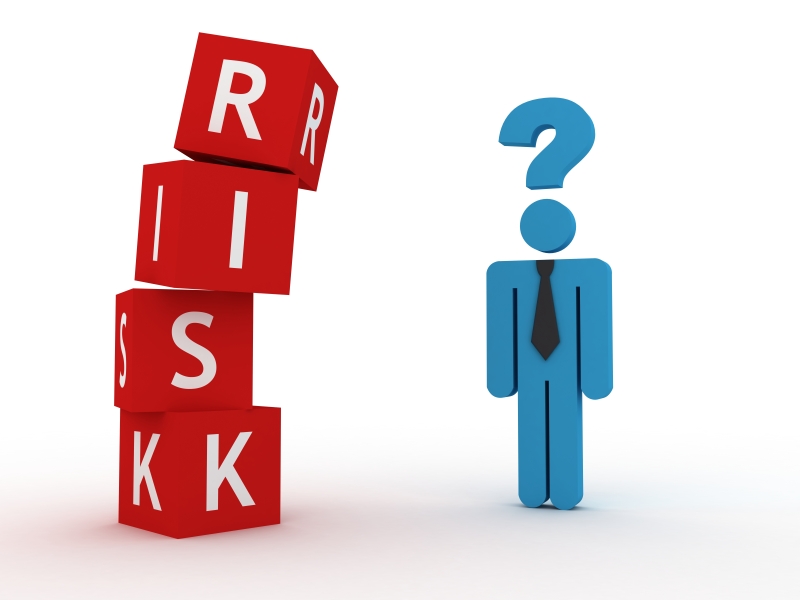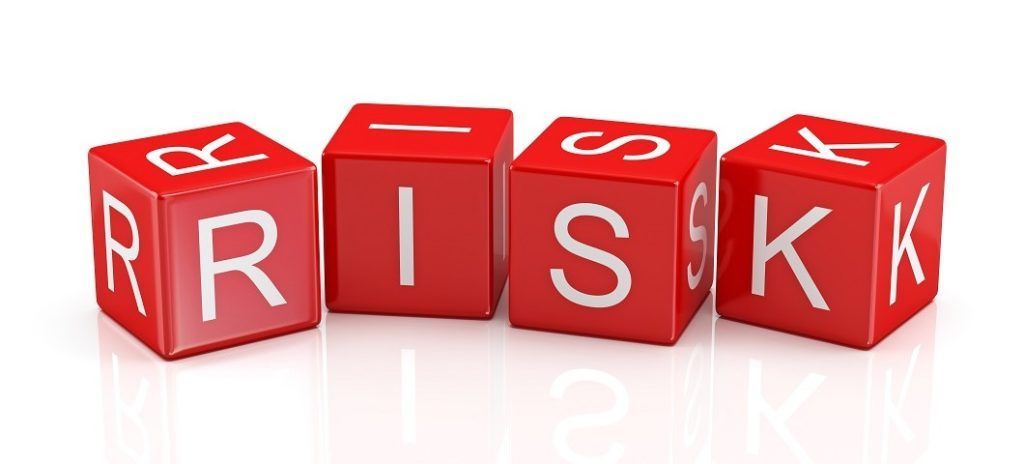In today's digital age, images are everywhere. They're essential for grabbing attention and conveying messages effectively. However, with the ease of access to images online comes a significant risk—using unauthorized images can lead to serious legal consequences. One of the go-to sources for high-quality visuals is Getty Images, a name that carries weight in the image licensing world. In this post, we’ll explore the tempting appeal of Getty Images and the risks involved when they get used without permission.
The Allure of Getty Images

Getty Images is synonymous with high-quality, professional photography. They boast a vast library of images that cater to a wide range of themes, from stunning landscapes and emotional portraits to dynamic sports shots. Here are some reasons why Getty Images allure so many individuals and businesses:
- Vast Selection: Getty offers millions of images, ensuring you can find just the right picture to fit your needs.
- High Quality: The images on Getty are produced by professional photographers and creators, ensuring that every visual is top-notch in terms of resolution and artistic quality.
- Variety of Licensing Options: They provide various licensing types, from editorial use to commercial licensing, catering to different project requirements.
- Reputation: Being a well-established brand, images from Getty come with a level of trust and credibility that is appealing to many users.
However, this alluring treasure trove also comes with a catch. While it might be tempting to download and use any image you see, the reality is that doing so without proper licensing can lead to significant financial and legal repercussions. The phrase "there’s no such thing as a free lunch" certainly applies here; the risks of unauthorized image use far outweigh the benefits of a quick, free download.
Also Read This: Essential Guide to Saving Images as JPEG on Mac
What Does Unauthorized Use Mean?

Unauthorized use of images refers to using copyrighted visuals without permission from the rightful owner. In the context of Getty Images, this means taking any image from their vast collection and using it in a way that hasn’t been explicitly allowed by their licensing agreements. You might be wondering, “What’s the big deal?” Well, let’s break it down!
When you see a stunning photo online, it's tempting to simply download it and use it for your own needs—be it a blog post, social media update, or even a presentation. However, if that image is protected under copyright (which is the case with Getty's offerings), you'll be infringing on their rights if you use it without consent.
- Commercial Use: Using the image for business purposes, like marketing materials or ads, typically requires a license.
- Editorial Use: If you publish an image in a blog or article, it must fit within the agreed-upon terms of the license.
- Modification: Altering an image (either by cropping, color adjustments, etc.) often still counts as unauthorized use if done without permission.
Most importantly, if you are unsure whether your use qualifies as authorized, it’s always best to consult the licensing agreement or reach out for clarification. Remember, respecting copyright is not just a legal obligation; it's a way to honor the creativity and hard work of photographers and artists.
Also Read This: How to Download Getty Images for Free Tips and Methods for Accessing Getty Photos Without Cost
Legal Consequences of Stealing Getty Images

Using images from Getty without proper authorization can lead to a series of legal consequences that no one wants to experience. Just like any form of theft, unauthorized image use is taken very seriously, especially in the creative industry where artists rely on their work for income.
Here’s a rundown of potential legal repercussions:
| Consequence | Description |
|---|---|
| Injunctions | You may legally be forced to stop using the image immediately. |
| Monetary Damages | You could be liable for damages, which can include statutory damages that amount to thousands of dollars. |
| Legal Fees | If you are taken to court, you might be responsible for both parties' legal fees, which can add up quickly. |
| Criminal Charges | Repeated offenses can lead to criminal charges in some jurisdictions. |
Given these potential fallout scenarios, it’s clear that using images without permission can lead to hefty financial losses and a tarnished reputation. It's always wise to protect yourself and your business by respecting copyright laws and obtaining the necessary licenses before using copyrighted materials. After all, it’s not just about following the rules; it’s about supporting creativity and the artists behind the images!
Also Read This: How to Get Bigger Images Off of Getty
5. Financial Implications of Image Theft
When it comes to using images without proper authorization, the financial consequences can be staggering. Many people underestimate the high costs associated with image theft, particularly when dealing with reputable agencies like Getty Images. Here’s a closer look at the potential financial pitfalls:
- Licensing Fees: If you’re caught using an image without permission, the agency may charge you a steep licensing fee, which can range from hundreds to thousands of dollars, depending on the image's popularity and usage.
- Legal Fees: Engaging in legal battles can be both time-consuming and expensive. If Getty Images decides to pursue legal action against you, be prepared to spend a significant amount on attorney fees.
- Settlements: In many cases, settling out of court might seem like the easier option, but these settlements can still run into the thousands, contributing to your financial burden.
- Reputational Damage: Beyond direct financial costs, being branded as a company that uses unauthorized images can harm your reputation, potentially costing you clients and revenue in the long run.
In summary, the financial implications of image theft extend far beyond the initial act of unauthorized use. It involves a web of costs that can accumulate quickly, leaving individuals and businesses in a challenging financial situation.
Also Read This: How to View Your Available Images on Adobe Stock
6. The Ethical Considerations
Ethics play a significant role in the conversation surrounding image use, particularly in a world where digital content is easily accessible. Here’s why it's crucial to reflect on the ethical considerations when using images from sources like Getty:
- Respect for Creators: Photographers and artists invest time, effort, and resources to create their work. Using their images without permission disrespects their creative process and undermines their livelihood.
- Integrity of Your Brand: Aligning your practices with ethical standards can strengthen your brand’s integrity. Consumers today often favor businesses that demonstrate ethical behavior.
- Encouraging Fair Compensation: By directly purchasing licenses for images, you contribute to a system that compensates creators fairly, thereby supporting the creative industry as a whole.
- Long-term Relationships: Being transparent and ethical in your image sourcing creates trust and fosters long-term relationships with artists and image providers.
Ultimately, it’s essential to recognize that image use should not just be about legality but also about ethics. By considering the implications of your choices, you help to cultivate a more respectful and fair environment for all artists and creators.
Also Read This: Compressing Image Size to 500KB
7. Alternatives to Unauthorized Image Use
When it comes to using images, it’s vital to understand that unauthorized use can lead to hefty fines, legal issues, and a damaged reputation. Luckily, there are many legal and ethical alternatives to consider. Here are some practical options:
- Stock Photos: Websites like Shutterstock, Adobe Stock, and, yes, Getty Images itself offer a vast range of high-quality images for a fee. By purchasing a license, you ensure that you’re in the clear legally, and you get access to numerous professional-grade images.
- Creative Commons Licenses: Many photographers and artists allow their work to be used under Creative Commons licenses. Just make sure to read and follow the specific terms attached to each image. Sites like Flickr and Unsplash host a large number of Creative Commons images.
- Public Domain Images: Images in the public domain are free to use without permission or fees. Websites like Wikimedia Commons and the Public Domain Review maintain collections of such images.
- Create Your Own Images: If you want something unique, try taking your own photographs or creating graphics. This way, you have complete ownership and creative control.
- Hire a Professional: For that extra touch of quality or for specific needs, consider hiring a professional photographer or graphic designer. This can be more costly, but the personalized results may be well worth it.
By exploring these options, you can stay on the right side of copyright law while also enhancing the visual appeal of your content.
8. Conclusion
Unauthorized image use, particularly from services like Getty, brings with it a plethora of risks that can significantly impact both individuals and businesses. Learning the specifics of copyright and the repercussions of infringing on someone else's work is essential for fostering a respectful and ethical digital environment.
Remember, each image comes with its own set of rights and obligations. The good news is that understanding these complexities doesn’t have to be daunting. By opting for the alternatives discussed, you not only protect yourself from potential legal troubles but also support the hard work and creativity of photographers and artists!
In summary, respecting copyright is crucial, not only for your peace of mind but also for the integrity of the creative community. Whether you choose stock photos, public domain images, or create your own, the key is to be informed and intentional about your image use. This way, you can enjoy the many benefits of beautiful imagery without running the risk of facing legal challenges.
 admin
admin








